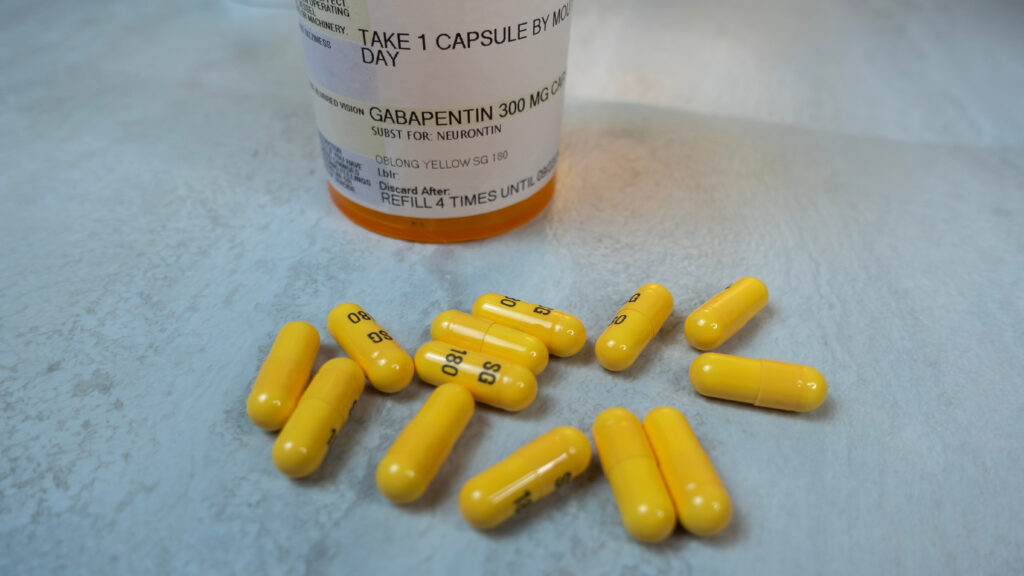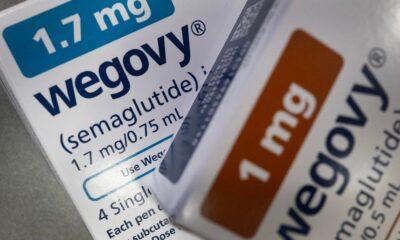Health
Liver decline slowed by off-label use of nerve pain drug

WASHINGTON – There are three FDA-approved medications for the treatment of alcohol use disorder. But another drug, one often used off-label for the condition, could provide more benefit for patients with alcohol-associated liver disease, a new study suggests.
The data, presented this week as a summary at Digestive Disease Week in DC, suggest that gabapentinoids for epilepsy may be a simple and effective treatment to slow the progression of alcohol-associated liver disease. Almost 30 million adults in the United States have an alcohol use disorder, according to the 2022 National Survey on Drug Use and Health.
The toll of alcohol-associated liver disease, including mortality, has been increasing for years, although precise estimates of the prevalence of ALD are difficult to measure because many people go undiagnosed. Alcohol is the number one reason why people in the US need a liver transplant. As a result, researchers conclude and biotech companies the same trying to find ways to stop the liver inflammation and scarring that cause end-stage disease.
Lead author Raj Shah, a fourth-year chief resident at the University of Central Florida and the Orlando VA health care system, collected VA data from 2002 to 2021 to conduct the study. He and his collaborators then matched 24,477 pairs of patients who had been diagnosed with alcohol use disorder and prescribed gabapentinoids or acamprosate.
Acamprosate, sold as the generic brand name Campral, was approved by the FDA in 2004 for the treatment of alcohol addiction and works in part by reducing withdrawal symptoms. Gabapentin first received approval in 1993 and is used to treat nerve pain, partial seizures, and fibromyalgia. Gabapentin is believed to work by soothing parts of the nervous system involved in seizures, pain, and more.
The Florida researchers compared the progression of patients’ liver disease (defined as a combination of a number of diagnostic codes) in those taking either drug. People with liver failure or who had undergone a liver transplant were excluded. They found that 15.8% of patients taking acamprosate developed severe liver scarring in the form of compensated (asymptomatic) or decompensated cirrhosis, alcoholic hepatitis, alcohol-related liver disease, or liver cancer, compared with 13.4% in the gabapentinoid group. Acamprosate users also had slightly higher rates of decompensated and compensated cirrhosis than those taking gabapentinoids.
And among veterans who had pre-existing liver disease, 30.4% of those taking acamprosate worsened, compared with 25.8% of gabapentinoid users. The findings were presented as a summary and therefore have not yet been peer-reviewed or fully published.
The study did not measure changes in liver scarring because that information was not regularly collected in the early 2000s, said Shah, who also works at HCA Florida Osceola Hospital. Because the study is retrospective, findings are limited; it does not prove that gabapentin alone slowed the progression of alcohol-associated liver disease. The researchers also did not check whether the recommended dosage of either drug was reached. Shah says higher quality studies comparing acamprosate and gabapentin are needed to prove what he found.
Gabapentin, while commonly prescribed for a variety of conditions, comes with its own risks. In 2019, the FDA warned that people with respiratory conditions or who are also taking medications that depress the nervous system (such as opioid painkillers) could develop fatal breathing problems. At least 12 people died from respiratory depression while taking gabapentinoids between 2012 and 2017, the agency found. At high doses, the drug can also increase the risk of falls, Shah said.
And in particular, there have been trials of gabapentin versus placebo as a treatment for alcohol use disorders and withdrawal symptoms mixed Results (an extended-release version worked no better than placebo).
But there are some practical reasons why gabapentinoids might work better than other medications for some patients, Shah said. To start, acamprosate treatment requires patients to take six pills per day. The other FDA-approved medications, naltrexone and disulfiram, also have shortcomings. With the latter, sold under the brand name Antabuse, drinking alcohol while taking it can cause strong side effects. Naltrexone (brand names ReVia, Vivitrol and Depade) is taxing on the liver and can no longer be used once patients reach severe levels of disease.
Gabapentinoids, because of their cooling effect on the nervous system, can also help address the underlying causes that drive patients to drink (and lead to worsening liver disease), Shah said. About a quarter of the veterans he studied had visited the VA pain clinic, and more than 90% had visited mental health services. About half smoked or had another substance use disorder, he said. Some research suggests gabapentin can help treat some anxiety disorders.
“If we can kill two birds with one stone with gabapentin – treat both their pain and their alcohol dependence – then it is justified to use gabapentin instead of just using acamprosate,” he said.
Researchers separated a group of patients who had taken their medication for at least 120 days to ensure the difference could not be attributed to one group being more adherent than the other. The researchers also took into account demographics, liver and kidney function, vital signs, health care use, medication use, recent visits to pain or mental health clinics, or comorbid conditions.











